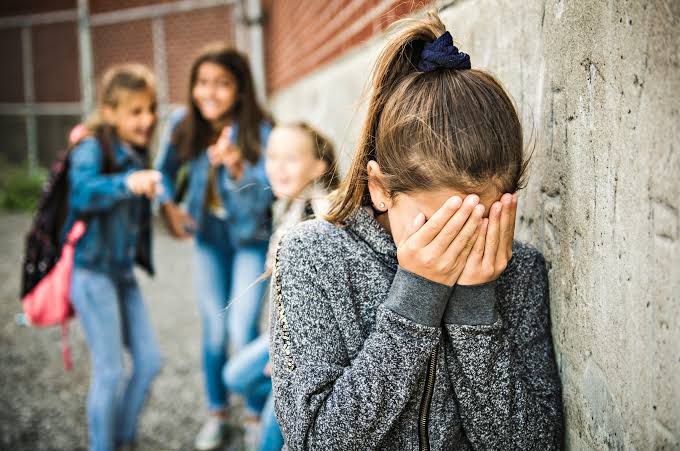Bullying is a widespread problem that profoundly impacts the mental health of its victims.
Bullying takes on diverse forms, ranging from physical attacks to verbal abuse and cyber harassment. Its subtle character erodes the essential feelings of safety and belonging necessary for wholesome growth.
The adverse impacts of bullying on mental well-being are numerous. Victims often endure increased stress levels, evidenced by symptoms like headaches, stomachaches, and fatigue. The persistent fear of encountering their bullies instills profound dread, impeding their academic focus and undermining their overall school performance.
Recently, a video depicting students from a secondary school in Abuja bullying a classmate emerged online. Nigerians took it upon themselves to ensure that those responsible were held accountable.
Moreover, eight countries stood out as both boys and girls reported notably high rates of victimisation from bullying compared to others. These countries include Lithuania, Latvia, Greece, Greenland, Romania, Turkey, Ukraine, and Korea.
On June 19, 2019, an American youtuber, Desmond Daniel Amofah, age 29, died of suicide by jumping off of the Manhattan Bridge and drowned. Amofah had struggled with mental health issues, and had been cyberbullied and harassed prior to his death.
Additionally, in 2010, Ty Smalley, aged 11, endured bullying due to his small stature, facing taunts like “Shrimp” and “Tiny Ty,” along with physical abuse such as being stuffed into lockers. Despite typically avoiding confrontation, Ty pushed back during a gymnasium altercation. Both he and the bully were sent to the school office, with Ty receiving a three-day suspension, while the bully served just one day. Tragically, Ty died by suicide later that day, using his father’s pistol. His story was featured in the 2011 documentary ‘Bully’.
Furthermore, the emotional toll inflicted by bullying can be severe. Feelings of loneliness, sadness, and despair permeate the lives of victims, stripping away the joy and vibrancy inherent in youth.
Aside from the immediate consequences, the lasting impact of bullying frequently extends well into adulthood, influencing the route of victims’ lives. Research indicates a connection between childhood bullying and a heightened susceptibility to mental health disorders like depression, anxiety, and even thoughts of suicide in later stages of life.
Furthermore, bystanders to bullying are not spared from its impact. Witnessing the suffering of their peers engenders feelings of helplessness and guilt, compounding their own mental anguish.
Combating the complex issue of bullying demands a sophisticated strategy that incorporates education, intervention, and support. Teachers and educators hold a vital position in creating welcoming and inclusive spaces where empathy, understanding, and respect are deeply valued and nurtured, providing a foundation for positive relationships and a safe learning environment.
However, early intervention is crucial in mitigating the long-term effects of bullying on mental health. Counseling services and peer support groups offer a lifeline to victims, providing a safe space to process their experiences and rebuild shattered self-esteem.
Lastly, the shadow of bullying casts a significant presence in academic settings, its subtle influence intertwining with the essence of student existence. The impact it has on mental well-being is deep, leaving behind a path of destruction.





